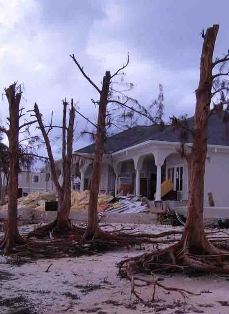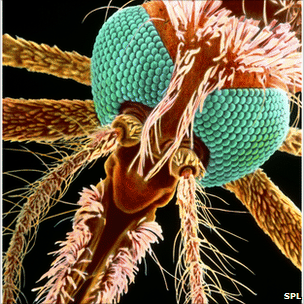Archive for August 13th, 2012

Construction safety on verge of collapse
 (CNS): The system for inspecting and monitoring safety on local construction sites is near to collapse, the complaints commissioner has revealed in a new report from her office. She said that the state of the regulatory infrastructure on health and safety in the construction industry in the Cayman Islands is so bad that workers lives are at risk. In only her second report since taking up office more than three years ago, Nicola Williams has highlighted a list of weaknesses in government that means sites are not being properly inspected.
(CNS): The system for inspecting and monitoring safety on local construction sites is near to collapse, the complaints commissioner has revealed in a new report from her office. She said that the state of the regulatory infrastructure on health and safety in the construction industry in the Cayman Islands is so bad that workers lives are at risk. In only her second report since taking up office more than three years ago, Nicola Williams has highlighted a list of weaknesses in government that means sites are not being properly inspected.
“Health and Safety in construction affects not only workers employed in this industry, but also members of the general public who could be injured – or worse – from falling masonry, unsecured scaffolding,” Williams reports, pointing to the collapse of scaffolding in Anderson Square, George Town last year.
Her report also comes in the wake of another serious construction accident last month when a man was critically injured after the crane he was operating flipped over in George in Sheddon Road.
Williams has made a number of recommendations to rectify the weaknesses and says the current overhaul of the Department of Employment Services presents the perfect opportunity to implement new policies to address the problem. Expressing concern, however, over the lack of resources, she said it is difficult to see how the new department would be more effective in carrying out inspection and enforcement without new cash.
“The Inspectorate still remains inadequately staffed for the amount of work it will be expected to undertake,” Williams warns.
Acknowledging that all government departments are expected to do more with less, Williams points out that the construction industry is a high-risk one and no price can be placed on human life.
“Of all the work the Department undertakes, any failings on their part in this area have the potential to be the most damaging to its reputation,” she wrote. “If there is an accident on a construction site due to negligence or failure to comply with Health and Safety standards that could have been prevented by a more robust programme of inspections, it is possible that not only the offending construction company, but also the Departmentand the Ministry, could be subject to legal action.”
During the process of compiling the report the Office of the Complaints Commissioner (OCC) found a need for inspectors to improve their working relationship with the legal department to present complete instructions and be more proactive about pressing cases through to prosecution.
The report also found deficiencies in training, with DER staff demonstrating poor awareness when it comes to the importance of international laws and conventions on construction safety and inspection. She warned that there was nothing to indicate that things had improved with the name change to the Department of Labour and Pensions.
While the OCC said there is collective experience, the department must better demonstrate its professionalism across the board.
“Labour Inspectors must carry out more proactive investigations, improve the quality of reports where necessary, maintain valid OSHA training certificates, minimize time spent on negotiations, and conduct a comprehensive outreach programme which must have the full and active involvement of those at Assistant Director level and above,” the report states. Weaknesses were also identified in the “inadequate and inefficient” filing system at the department.
While the new department is in its infancy, the OCC has made a number of recommendations that it says will be easier to implement at this stage, demonstrating a clear commitment to proper regulation.
Firstly, Williams said, the Department of Labour and Pensions (DLP) should establish a dedicated Health and Safety Unit. “This is perhaps the single most important recommendation. Even a small unit comprised of two Labour Inspectors, one senior, would enable them and DLP as a whole, to be more proactive – preventing accidents from happening rather than reacting to incidents after the fact,” she wrote.
Secondly, she pointed to the need for improved training, as well as better resources, equipment and transportation, including oxygen meters, light meters, noise level meters and HD cameras.
Williams also addressed the controversial area of labour inspectors owning or running construction companies, which she said was a serious professional breach. Williams said there was evidence that this had already created a conflict of interest. The report said that in the opinions canvassed from some victims of construction site, accidents inspectors involved in the business turned a blind eye in some cases.
She said the DLP should implement a policy to ban future workers from running or having interests in construction companies. There are existing staff engaged in the construction industry outside their core work but to dismiss them or ask them to immediately relinquish their interests would be too draconian so she recommended an effective register of interests.
It was also recommended that inspectors move back to being specialists, where health and safety is concerned, rather than this being one of many jobs that the staff do. This is supported by the employment ministry but Williams found it had not yet taken place in any practical way.
The report further recommends changes to give the new department director the power to close an entire worksite as well as a requirement for all construction companies, no matter what size, to keep records. Fines also need to be increased to a level where they are "a painful disincentive" to compel employers to comply and the failure by a company to appoint a safety officer should be an offence.
In addition, employers who routinely and deliberately flout their health and safety obligations, risking people’s lives, should not get Trade & Business licenses or work permits. Whistleblowers also need to be protected in law with penalties being introduced for victimization of those who report wrongdoing.
“However, it must also be noted that a number of both current andpast members of the Department have expressed concerns with the level of confidentiality within the Department itself,” Williams wrote in the report. “This is unhelpful, unfortunate and unprofessional. There is little point in legislative change in this area if this continues to be a problem within the new DLP.”
See the full report below.

Storm forecasters say season may be busy after all
 (CNS): Hurricane experts have revised their predictions slightly for the 2012 Atlantic Hurricane season after forecasters said warmer-than-normal sea surface temperatures and wind patterns now favour more storm formation. Although the season be busier than average the prediction is tempered with the expected development of an El Nino weather pattern over the Pacific which could still suppress storms. The predictions come on the heels of four tropical storms and two hurricanes all of which formed before the half way point ofthe season. Now in the peak time for storms experts say as many as 17 storms could form this year.
(CNS): Hurricane experts have revised their predictions slightly for the 2012 Atlantic Hurricane season after forecasters said warmer-than-normal sea surface temperatures and wind patterns now favour more storm formation. Although the season be busier than average the prediction is tempered with the expected development of an El Nino weather pattern over the Pacific which could still suppress storms. The predictions come on the heels of four tropical storms and two hurricanes all of which formed before the half way point ofthe season. Now in the peak time for storms experts say as many as 17 storms could form this year.
National Oceanic and Atmospheric Administration predicts that as many as eight hurricanes, could form at least two of which could become major hurricanes with wind speeds of 111 mph or higher. Last year was one of the busiest seasons on record with 19 named systems.
Forecasters had originally predicted an average season or ‘near normal season’ with nine to 15 tropical storms four to eight of which would likely become hurricanes. However, the weather experts at the centre now believe there is a 70% chance that the 2012 Atlantic season will turn out to be above average.
The high activity in the Atlantic has been happening since 1995 because of the ocean and atmospheric conditions, said Gerry Bell, the lead seasonal forecaster at NOAA's Climate Prediction Center.
“Early-season activity in the deep tropics off Africa's coast, which produced Ernesto and Tropical Storm Florence early this month, also generally indicates a more dynamic season, Bell said. "Conditions are more conducive right now, but we expect them to become less favourable if El Nino develops as expected. We have a high confidence that El Nino will develop this month or next, but also that its influence will be delayed until later in the season," Bell said.
The Atlantic hurricane season got off to an earlier-than-official start this year when Tropical Storm Alberto formed May 19 off the South Carolina coast.
On Monday 13 August in the afternoon there were two different weather systems that the NHC was giving a 20% chance of becoming storms. The remnants of tropical depression seven were moving over the central Caribbean Sea, producing disorganized showers and
thunderstorms which the forecasters said was conducive for regeneration over the nextday or so.
Ot in the Atlantic there was limited shower activity in association with a trough of low pressure located about 1350 miles west-northwest of the Cape Verde Islands. No significant development of the disturbance was expected during the next day or so but experts said environmental conditions could become more conducive by Wednesday.

Fuel prices push up value of imports
 (CNS): The country’s economic experts say that Cayman’s imports grew in value by over 8% in the first quarter of this year. People imported CI$184.6 million worth of stuff into Cayman but the bulk of the rise came from the importation of petroleum products, including mineral fuels and lubricants, which rose by 19.8% to CI$42.3 million, compared to $35.3 million for the corresponding period in 2011. Imports of non-petroleum products grew by 5.5% to total of CI$142.3 million, which included a food and beverage increase of 10.8%. The ESO stated in its bulletin that the increase in the value of imports was largely a result of continued increases in fuel prices.
(CNS): The country’s economic experts say that Cayman’s imports grew in value by over 8% in the first quarter of this year. People imported CI$184.6 million worth of stuff into Cayman but the bulk of the rise came from the importation of petroleum products, including mineral fuels and lubricants, which rose by 19.8% to CI$42.3 million, compared to $35.3 million for the corresponding period in 2011. Imports of non-petroleum products grew by 5.5% to total of CI$142.3 million, which included a food and beverage increase of 10.8%. The ESO stated in its bulletin that the increase in the value of imports was largely a result of continued increases in fuel prices.
Despite the comments from the ESO about the reason for the increase in the value of imports into the country, the premier believed it was a positive development. “This growth is an indication of the continuing recovery of the local economy from 2011,” McKeeva Bush, who is also the minister of finance, said.
Although the United States remained the main source of goods for Cayman, there was a 100% rise in the imports from Jamaica, United Kingdom, Panama and Mexico. However, a fall in the importation of watches led to a decrease in imports from Switzerland.
The value of transport equipment and parts was higher by 24.2% while in contrast, capital goods imports fell by 10%.
Meanwhile, as Cayman spent more money bringing things in, a drop in food sales overseas lead to a decrease inlocal exports in the first three months of this year by 42.6%, to CI$2.9 million.
This represented a visible trade deficit exports minus imports in the first quarter 2012 which increased by 6.9%, some CI$16.5 million, to CI$181.7 million compared to the CI$165.2 million recorded in the first quarter of 2011.
See full quarterly bulletin below.
Ex CS boss slams waste
(CNS): The former deputy governor and head of the civil service, Donovan Ebanks, has said that the public money spent in Cayman Brac on paving private driveways should be paid back to government coffers. Following his recent retirement, the public sector boss is now free to express his opinion over political issues, which he did last week as part of a public panel discussion on government’s budget crisis. Ebanks also revealed that he believes the $9 million hurricane shelter project for the Sister Islands needs to be suspended, given the current financial circumstances of government. Asked about wasteful public spending, Ebanks said that there were some classic examples that stood out.
“Certainly the situation that we saw in Cayman Brac with the paving of the parking lots is at the top of the list and I think those expenditure should be recouped,” Ebanks said at the Generation Now discussion last Wednesday at the Harquail Theatre. “The other classic example … is this proposed shelter for nine million dollars which I think is absolutely unnecessary and should be stopped.”
This is not the first time since his retirement from the top civil service job that Ebanks has spoken out; he was vocal in his support recently on the referendum for one man, one vote and publicly signed the petition and encouraged all public sector workers to do the same.
On Wednesday Ebanks also express his opinion on the issue of over-development in Cayman, which he said put pressure on the local infrastructure and, in turn, the public sector.
During what prove to be an interesting and focused discussion, the other panellists also noted the issue of waste and mismanagement of public cash by government. Opposition Leader Alden McLaughlin pointed out that here were many areas of waste that could be addressed but he pointed in particular to things like the Nation Building Fund, which had been allocated some $10 million in the last two budgets.
McLaughlin said it wasn’t that the all of the money was necessarily being wasted but there was serious potential for mis-management with a whole new structure for allocating public money and with a minister being so close to that allocation. He explained that if it was too onerous for young people to get scholarships, then government should address the criteria laid out by the Education Council, not create a separate way of awarding them.
“Why is it necessary for the premier to select who gets scholarships?” McLaughlin asked. “Anytime we give a great deal of discretion to ministers, whoever the ministers are, as to how they can dispense money you inevitably get into problems. The ministers get into problemsbecause they are always going to be lobbied by people for this grant and for this assistance. It is far better if there is a system that is run where there is at least some degree of distance between the minister who makes the policy decision and those who actually dole out the money.”
Cayman Finance chair Richard Coles, who was also a guest on the panel, pointed to his own experiences as the head of the Legal Affairs when he was attorney general and how in his first year in post he was delighted to find that he and his staff had come in under budget, only to be told by his chief financial officer that this was bad. Not only would the department not be able to carry that savings over to the next year if they did not spend the money on something before the year end, the following year’s allocation would be cut by that amount as well.
“That is an absolutely crazy situation that was happening throughout the civil service,” he said.
UCCI Professor Dr Weishan said government all over the world had that system in place, where people are rewarded to be wasteful rather than thrifty and prudent.
Ezzard Miller pointed to some serious wasteful spending in government at present, not least because the proper processes and checks and balances were being avoided, ignored and even aborted.
Pointing to the premier’s claims during the Cohen loan controversy that substance was more important than process, Miller said that’s when government risks a serious level of wasteful spending. He also agreed with Ebanks that money spend paving private driveways in Cayman Brac should be paid back.
The Generation Now panel discussion will be broadcast on Radio Cayman at 7pm this evening.

Hazard agency redesigns internet communication
 (CNS): Cayman Prepared the website which serves to deliver information to the Cayman public on behalf of Hazard Management Cayman Islands (HMCI) has been redesigned and the agency has expanded its internet presence on the social media sites, Facebook and Twitter. The website www.Caymanprepared.ky has a new look and feel officials said, and new information has been added. “One of the things that we are really pleased about, is that we can now make changes to virtually any portion of the Cayman Prepared website ourselves and that enables us to get content up quicker and we can be more responsive,” said Awareness Officer Simon Boxall.
(CNS): Cayman Prepared the website which serves to deliver information to the Cayman public on behalf of Hazard Management Cayman Islands (HMCI) has been redesigned and the agency has expanded its internet presence on the social media sites, Facebook and Twitter. The website www.Caymanprepared.ky has a new look and feel officials said, and new information has been added. “One of the things that we are really pleased about, is that we can now make changes to virtually any portion of the Cayman Prepared website ourselves and that enables us to get content up quicker and we can be more responsive,” said Awareness Officer Simon Boxall.
“In the past we were limited to a very small portion of the site where we could upload information, and we were often dependent on third parties to assist. I want to say a big thank you to Alistair Harper, Greg James, David Elms and others at Computer Services who worked closely with HMCI on the redesign,” he added.
HMCI Director McCleary Frederick explained that when the Cayman Islands is threatened by a tropical cyclone, residents need up-to-date information that is tailored to the local environment.
“We have a small team of only six staff at HMCI and out of that number only two members of the team are specifically tasked with public awareness and preparedness issues. It can be quite demanding to meet the expectations of the media and the general public. In addition to Cayman Prepared website, information is now available on Twitter and Facebook. The new website will certainly make our job easier and more efficient and improve our service delivery to the public,” Frederick explained.
In addition to the website and various public awareness and outreach duties, the Deputy Director for Preparedness and the Awareness Officer are also involved in Community Emergency Response Team training, they also provide hazard awareness seminars and conduct drills at Government agencies, schools, civic organisations and for the private sector.
“The website is an important tool in HMCI public awareness strategy which also includes brochures, displays at special events, TV, radio and print media. We recognize that the way people access information has changed; as result HMCI is working to evolve and to keep pace,” added Boxall.

Our budgetary crisis
While listening to the premier speak at Mary Miller Hall this past Wednesday I found myself overwhelmed with a feeling of déjà vu. Prior to Mr Bush revealing the proposed revenue measures which are to replace the ‘Community Enhancement Fee’ he spent nearly two hours reminding the public of how the FCO came to be in control of Cayman’s budget, an agendum which has become all too common at public meetings.
The members of Cayman United were extremely disappointed with the way in which last Wednesday’s meeting was conducted. It seems obvious to our group that the sitting government failed to view last week’s meeting as a method of communicating new revenue measures to the public, and addressing any relevant questions which may have arisen; rather it seems our elected officials viewed this meeting as an opportunity to blame previous administrations for allowing the Foreign & Commonwealth Office (FCO) to control our budget.
As mentioned in one of our previous public statements, the vision of Cayman United is for the future and we rarely consider past events. Mr Bush, however, seems to be focused on those events which he claims have led to the crisis in which we now find ourselves.
We therefore feel it necessary to remind the sitting government, as well as the public, that our current budgetary crisis is not simply due to the previous PPM administration, nor is it a direct result of the sitting UDP administration. Rather, we feel that we find ourselves in this crisis due to constant mismanagement of the country’s finances by successive administrations.
The PPM administration spent outside their means in their final year of service; however, as they failed to require audited accounts from various ministries, overspending should perhaps have been expected. The deficit which resulted from this led to the FCO taking control of our finances, but the FCO did not simply dictate consequences for this overspending. Instead, the FCO approved a three year plan for our budget which was presented by the sitting UDP government. The current administration has again failed to require that public accounts be audited and exceeded the budget framework which they agreed with the FCO.
Both parties are at fault.
The way forward for the Cayman Islands is an administration which recognizes the importance of consistently and reliably audited public accounts. Without these it will prove impossible to understand where our government will spend more than $600 million which they expect to earn in revenue over the coming year. After all, one cannot reduce wasteful expenditure without first identifying it.

Woman ‘escapes’ return to jail over stolen cash
(CNS): A woman convicted of stealing more than $64,000 from a bank in 2008 has avoided returning to jail after failing to pay a compensation order. Betty Pollard, who was sentenced to two years imprisonment after pleading guilty to stealing the money over an 11 month period, had also been ordered to pay back what she had stolen from her former employer, the Royal Bank of Canada, when she was released. However, the money had remained unpaid and the crown had sought to send Pollard back to jail, but after receiving a lump sum of $25,000 from her, the crown agreed Friday to a payment scheme to keep the woman out of prison.
The court heard that Pollard had made the lump sum payment from an undisclosed source but the delay had been as a result of her efforts to have the money released from her pension fund. For several months Pollard’s attorney was in discussions with the pension board about allowing Pollard access to her pension in order to pay the money to the courts to keep her from returning to jail. However, the attorney confirmed that the board had refused access to the money, regardless of her situation.
Defence attorney Nick Dixie told the court that now his client had made a payment of $25,000 she had agreed to a payment plan to pay back balance at a rate of $800pcm until December 2015, when the compensation order would be paid off in full.
As a result, prosecuting counsel Kenneth Fergusson confirmed that the crown was content to allow Pollard to retain her liberty on this basis and the court released her from bail. Pollard was warned by the judge, however, that if she did not keep up with the payments she could still end up in jail.

Activists concerned over survival of GM mosquitoes
 (CNS): An environmental activist group is still raising concerns about numerous errors and omissions in the risk assessment process regarding a UK company’s research into the use of genetically modified (GM) mosquitoes. GeneWatch said Oxitec’s release of these engineered insects in large numbers including 3 million in the Cayman Islands in an experiment to reduce the incidence of the tropical disease dengue fever lacked consultation. Using the Freedom of Information system in the UK the environmentalists found many issues surrounding the experiment were not properly considered including invasive mosquito’s becoming established at release sites and the potential for large numbers of GM mosquitoes to survive.
(CNS): An environmental activist group is still raising concerns about numerous errors and omissions in the risk assessment process regarding a UK company’s research into the use of genetically modified (GM) mosquitoes. GeneWatch said Oxitec’s release of these engineered insects in large numbers including 3 million in the Cayman Islands in an experiment to reduce the incidence of the tropical disease dengue fever lacked consultation. Using the Freedom of Information system in the UK the environmentalists found many issues surrounding the experiment were not properly considered including invasive mosquito’s becoming established at release sites and the potential for large numbers of GM mosquitoes to survive.
Large numbers of the GM mosquitoes were also released in or Brazil as well as Cayman and a smaller number Malaysia which was the only place the activists say there was consultation with the public.
“Failure to publish risk assessments before trials of GM mosquitoesin Cayman and Brazil, and the omission of known adverse effects, is irresponsible”, said Dr Helen Wallace, Director of GeneWatchUK “People cannot give informed consent to trials if they are not given complete information.”
The release in Cayman took place in 2010, in East End, officials from the Mosquito Control and Research Unit here stated that the experiment was safe as the male GM mosquitoes were infertile and therefore couldn’t breed. The local officials said that research results showed a decline of some 80% in the local pest’s population in the area of the release.
However, the activists have persistently claimed that the GM mosquitoes’ sterility is partial and conditional. “The GM mosquitoes do breed and most die at the larval stage: the extent to which their offspring survive to adulthood is one of many factors which influences the efficacy and safety of this approach,” the environmentalist group stated.
Some of the results of Oxitec’s experiments have been released to the press but they have not yet been published in scientific journals and the activists claim that the experiment was ineffective which is a matter of particular concern in dengue endemic areas. “In some situations partial or temporary suppression of mosquito populations could make the dengue situation worse,” GeneWatch said in a release.
Aside from not correctly following the procedure for trans-boundary notification of shipments of GM mosquito eggs overseas the activists criticize the firm and the UK government over the failure to publicise risk assessments prior to open release trials. They say numerous important issues were not properly considered before millions of GM mosquitoes were released in to the environment in the Cayman Islands and Brazil.
Smaller experiments in Malaysia did include a consultation process, however there were some deficiencies with the process, GeneWatch suggested.
“In its publicity about the trials, Oxitec has oversimplified the complex relationship between Aedes aegypti mosquitoes, other mosquito species, the humans that are bitten, and the four serotypes of dengue virus,” GeneWatch said. “This means that most potential adverse impacts have effectively been excluded from public debate, the risk assessment process, and the process of seeking consent from local populations.
Documents now held by GeneWatch obtained through FOI requests are also said to show that the UK and Brazilian governments agreed in 2007 to test and commercialise the technology in Brazil, based on claims made by the company that it would be effective.
“A new production facility has now been built in Brazil to increase GM mosquito releases to 2.5 million per week. “The rush to commercialise Oxitec’s GM mosquitoes in Brazil could be putting people’s health at unnecessary risk,” said Dr Wallace. “There has been no attempt to consider human immunity effects or to monitor the impacts on immune response or the incidence of dengue”.
"The decision to scale-up experiments in Brazil appears to be driven by a political agreement to commercialise Oxitec’s technology there, rather than by a thorough assessment of the likely risks and benefits," GeneWatch said..

Wounded man remains on life support
 (CNS): A man who was stabbed in the neck while attending a party in Windsor Park, George Town, in June remains in a critical condition on a life support machine. The man accused of inflicting the wounds was denied bail on Friday because of the seriousness of the charges against him. Garry Hurlston denies being the person who stabbed the victim in the neck, but based on the information of a witness at the scene, the crown says Hurlstone is the man who tried to kill him. The crown said Friday that it had a strong case against the defendant and argued against his release on bail.
(CNS): A man who was stabbed in the neck while attending a party in Windsor Park, George Town, in June remains in a critical condition on a life support machine. The man accused of inflicting the wounds was denied bail on Friday because of the seriousness of the charges against him. Garry Hurlston denies being the person who stabbed the victim in the neck, but based on the information of a witness at the scene, the crown says Hurlstone is the man who tried to kill him. The crown said Friday that it had a strong case against the defendant and argued against his release on bail.
Speaking on behalf of Hurlston, defence attorney Prathna Bodden of Samson McGrath argued that her client was not the man who stabbed the victim and that the only witness to say so, from a party where many people were gathered, had told the police in the first instance that he did not see who had stabbed the victim.
Acknowledging the seriousness of the charges against her client, who is a father of five children and a self-employed mechanic, the lawyer said he could be released on bail with an electronic tag and strict curfew conditions. With strong ties to the community and an offer of surety, Bodden said Hulston was not a flight risk.
However, Justice Carol Beswick, from Jamaica’s Supreme Court, who is temporarily sitting in Cayman’s Grand Court, denied Hurlston’s bail application “because of the seriousness of the offence” and remanded him to HMP Northward until 24 August, when the accused man will be asked to formally answer the charge of attempted murder.